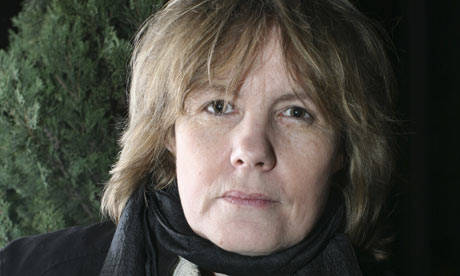
Back in 2006, when the Crime Writers' Association inaugurated the International Dagger – awarded to the best crime novel in English translation – they probably didn't expect that one author would come to dominate the prize. But in the four years the prize has been running, the same author has been shortlisted each year – and has won it three times. That author is Fred Vargas, and she thoroughly deserves all the accolades heaped upon her.
The woman who wrote The Chalk Circle Man (which won this year's prize), Wash This Blood Clean From My Hands and The Three Evangelists is, I believe, one of the most inventive, most interesting and most original crime writers in the world. When someone writes this well about character and place and then marries that to plots that keep you up well after you really ought to put out the bedside light, you know you're in the presence of genius.
Take the opening to my favourite of her books, Wash This Blood Clean From My Hands, in which she introduces her most celebrated character, commissaire Jean-Baptiste Adamsburg. It is cold in the police department and he is looking at the heater, hoping his benign gaze will kick it into action, or get the engineer to arrive quicker. That he believes, as Vargas makes it clear he does, that just a look might expedite this immediately gives you a rounded impression of Adamsburg – and shows you're not in the presence of your usual copper.
There's no getting away from it, Adamsburg is a difficult character to understand, but an easy one to love. He's a strange, bewildering character, possessed by demons that aren't the usual drink or existential melancholy, and a big believer in following his own thoughts and theories. Grubby, detached and instinctual, he inhabits a Parisian netherworld somewhere between Georges Simenon's Maigret books and his romans durs – novels like The Stain in the Snow, unflinching in their depiction of a morally degenerate France.
Vargas has a different agenda, one that mixes modern France with a past it perhaps never had. The first Adamsburg novel to be translated into English, Have Mercy On Us All, featured a town crier; in Wash This Blood Clean From My Hands a killer is on the loose with a trident, while Seeking Whom He May Desire sees villagers convinced a werewolf is at large in their community. That Vargas is a historian and archaeologist by trade bleeds through into her narratives; they are steeped in the past, in mythology and in superstition.
They are also awash in the history of detective fiction. At the heart of the series is the relationship between Adamsburg and his wine-soaked deputy Dangland – a pair who need each other's particular specialisms to solve these cases. No matter how gothic the case, however Gallically strange, the two detectives offer a reassuring mystery staple – the classic mismatched cops.
And that, finally, is where Vargas's genius lies: she understands the fundamentals of classic crime writing, but is unafraid to put her own warped spin on proceedings. In doing so, she keeps her readers with her through the darkness, through the bizarre turns of events. It also helps that she has, in Siân Reynolds, a translator who deeply understands the terrain of her novels. The difference between the David Bellios-translated Have Mercy On Us All and the more understated and supple version that Reynolds has produced for, say, The Chalk Circle Man is marked – despite their exceedingly French atmosphere, Reynolds never once makes you feel that you're missing out on the subtleties of the original.
Thanks to this sensitivity, we get to see Vargas's fictional world with clarity. It's a place that's dark, brooding, menacing, yet punctuated with dark humour and rays of humanity – and a visit is essential for all who care about great crime writing – or just great writing in general.

